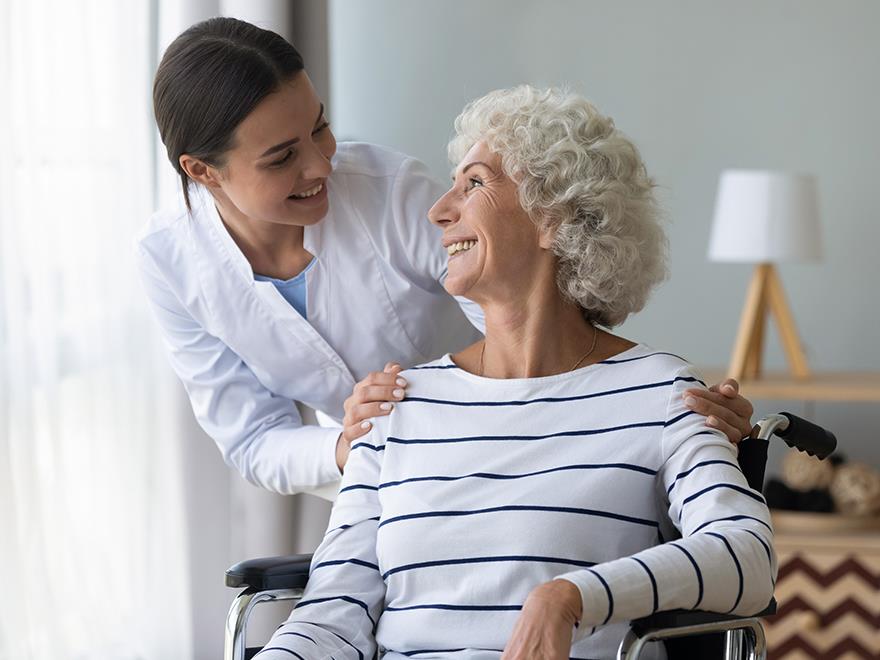Creating excellent patient care

The healthcare sector is constantly changing. With the increase in complexity of care issues, the changes in patient expectations and the technological developments of care innovations in healthcare, it is necessary for care providers to be able to continuously interact with other care professionals, empathise with the patient and their situation and provide the best possible care.
Nowadays, it is increasingly common in the healthcare sector to learn from other sectors. Therefore, healthcare has been able to adopt some of the lessons learned from aviation in improving safety. But when it comes to excelling, elite sport can be a good example. Elite athletes must constantly look for ways to improve themselves to enable them to reach the highest level.
This got us thinking: what can nurses learn from elite athletes when creating excellent care? In doing so, we do not focus on the unique characteristics of these unique people, but rather on their environment. What are the characteristics of the performance environments in which athletes can continuously develop in a sustainable manner? These lessons can be used to formulate recommendations for care and care education.
Rapidly changing society
The current health context has consequences for care workers. Passionate care workers (such as nurses) are exposed to a rapidly changing society daily and constantly want to provide the best possible care to every patient. To do this, they will need to be constantly aware of the (technological) developments in the profession; be able to apply this knowledge, in coordination with other professionals, when providing care; and be able to adapt it to the personal situation of the patient as well as possible when providing care (Govranos & Newton, 2014). In short, working in care is an elite sport!
One way to ensure quality of care is to prevent errors. The focus on error prevention was first described in Kohn and Dona's (2000) report ‘To Err is Human’ (Mitchell, Schuster, Smith, Pronovost, & Wu, 2016). Their message was not to judge care providers for mistakes, but to reflect together and learn from the mistakes made, to create a safer healthcare system (Kohn et al., 2000).
Learning from mistakes
After the publication of this first report, discussions and research on patient safety increased (Stelfox, Palmisani, Scurlock, Orav, & Bates, 2006). Millions of reports on healthcare incidents have been shared in order to learn from previous mistakes (Mitchell et al., 2016).
In contrast, several researchers question whether collecting and sharing information about mistakes and incidents is enough to create good healthcare (Battles & Stevens, 2009). In the end, caring for patients with multi-morbidity, for example, is something that requires more than just carrying out protocolised care. When care workers constantly strive to become better versions of themselves, they can respond to the continuous changes in care and play a major role in patients' quality of life.
Research
A scoping review of characteristics of a performance environment that creates sustainable excellence.
Duration
This project runs until 31 December 2022.
Collaboration
Collaboration takes place between the Nursing degree programme and the Relational Care and Urban Ageing research groups.
Contact
- Loes Verdoes (Research group Relational Care), l.verdoes@hhs.nl
- Peter Renden (Research group Relational Care)
- Jeroen Dikken (Research group Urban Ageing)